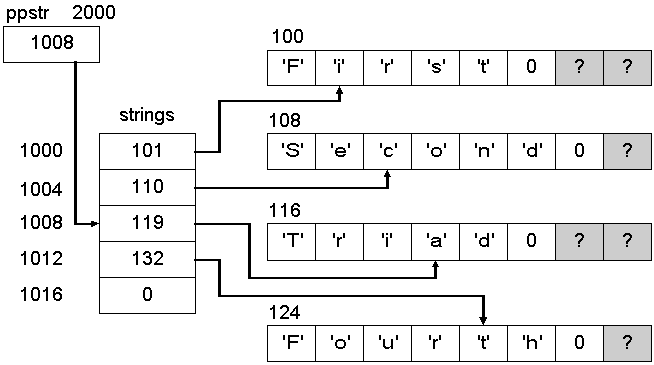

After executing the statements from the previous example, what will be displayed by the printf function?
*++*--ppstr = 'r'; /* ??? */
*(*ppstr += 2) = 'a'; /* ??? */
printf("%s\n", (*ppstr - 3)); /* ??? */
Second statement:*++*--ppstr = 'r';

The statement:*(*ppstr += 2) = 'a';

printf("%s\n", (*ppstr - 3)); /* ??? */
int i;
char *s[] = {"First", "Second", "Third", "Fourth"};
char *strings[4];
char **ppstr = strings;
for (i = 0; i < 4; i++)
{
strings[i] = malloc(strlen(s[i]) + 1);
strcpy(strings[i], s[i]);
}
/* modify the strings */
/* free the memory used by the strings */